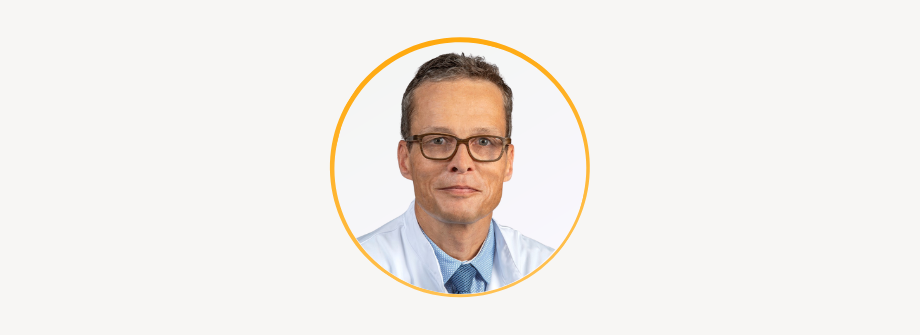
Inspectors are the backbone of JACIE; without them, there is no accreditation process. Becoming an inspector is a wonderful way to contribute to maintaining global quality standards. As the number of JACIE applications has increased, we are constantly looking for new inspectors to join our ranks. At the moment, we are particularly keen to hear of German, French and Spanish speaking Clinicians and Quality Managers.
Each month, you will have the opportunity to meet with one of our JACIE Inspector who will share his/her experience.
Read our interview with Martin Bornhäuser, Head of the Department for Hematology and Medical Oncology, University Hospital Dresden, Germany.
Throughout his clinical career Prof. Bornhäuser has focussed on translational research studies in the area of acute myeloid leukaemia and hematopoietic cell transplantation. He was one of the founding members of the Center of Regenerative Therapy Dresden (www.crt-dresden.de) and developed additional expertise in the areas of stem cell biology and adoptive cellular therapy. Professor Bornhäuser has a portfolio of responsibilities encompassing clinical service, being head of the Good manufacturing laboratories, coordinating translational research, lecturer in medical studies and in a master course for regenerative medicine and is an elected member of the internal medical faculty in Dresden. In 2015 he became a visiting professor at the department of haematology at King’s College London, UK. In 2016, he joined the directorate of the National Center for Tumor Diseases (www.nct-dresdden.de) in Dresden.
Professor Bornhäuser visited his first EBMT Annual Meeting in 1995 and has mainly been active in the Acute Leukemia Working Party and he is currently a member of the EBMT Cellular Therapy and Immunobiology Working Party.
Professor Bornhäuser has performed 22 inspections so far, being along with Aurora Vassanelli, the active inspector with most audits performed.
Why did you decide to become a JACIE inspector?
I was involved in the inauguration of the JACIE process in Germany and wanted to support this, also knowing that each inspection enriches my personal experience. Moreover each inspection was full of suggestions which I could implement at our own center.
What has been the most memorable inspection that you have ever done?
Probably one in France in Paris where I was quite challenged by speaking French and understanding all the medical language in French!
What ‘keys to successful JACIE accreditation’ can you share with us?
An important aspect is the team-spirit which should come across and the enthusiasm which people feel for their work regardless of whether all items and the nitty-gritty paper-work are 100% perfect.
Generating a good atmosphere for both the local teams and the inspectors helps a lot. In addition its always great to demonstrate that the overarching motivation for improving one’s program remains related to patient comfort and outcome and is not too much dominated by QM aspects only.
How has your career/work benefited from being a JACIE inspector?
As mentioned above I have met a lot of great colleagues and transplant teams, I have always enjoyed the possibility to learn from teams inside and outside Germany. The pandemia was a clear challenge and also limited my capacity of getting involved.
Do you have any tips or advice for anyone who aspires to become a JACIE Inspector?
Don’t be overwhelmed by the increasing amount of bureaucracy and the constant increase of the length of check-lists. See the chance of getting input from other teams and the option to learn that several solutions may exist for the same problem.